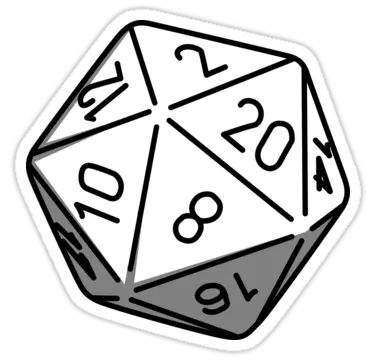Context: I’m missing a cutting board. So I wrote in our telegram family group: “Wo ist eigentlich unser zweites großes Schneidebrett hin?” (literally: “Where is actually our second big cuttingboard thither?”).
By using the modal particle “eigentlich” I insinuate that something is oddly off and express an emotional state of curiousity and/or mild discontent.
By adding “hin”, I notify that I ask because it is not where it is supposed to be and not because I don’t know where it should be.
Now I ask myself, how would I express this additional information in English?
“Where is actually our second big cuttingboard thither?"
I lol’d
“Eigentlich” here would be “by the way” because it’s used to express curiosity in a marginalised way. “wo ist… hin” is “where has… gone (to)”
So a more literal translation including the undertones would be “By the way, where has our big cutting board gone?”
Who has stolen my second big cutting board?
It looks like the second cutting board has grown legs. Any ideas?
In Germany, if something has grown legs, it’s implied that someone took it without asking or it has been stolen. At least that is how I am using it, or how I grew up using it.
Yes we have that in English too. But we also have the use of “stolen” to mean “borrowed without checking first”.
It implies zero or only the tiniest possible wrongdoing on the part or the one who took it. The use of the strong word “stolen” is meant as a sort of disjunction to eliminate any interpretation of mild annoyance.
It’s sarcasm basically, but without the tone. It’s like when I say “Uh I took one of your french fries when you were away from the table” and someone else says “oh you’re going to jail Bud”. It’s a sarcastic escalation of the severity, to signal the opposite: “It’s totally okay”
It can also mean that in English but generally not specifically, depending on context.
Also having grown legs is wrong for a cutting board. It’s literally an abomination, and that implies the cutting board being gone, as a state of affairs, is a wrong. That implies the place I’ve looked and not found it is the right place, which implies I know and have checked its home location.
The key for all the top answers is that they imply the chopping board has moved of its own volition. This is what adds the subtle emotion to “Where is the chopping board?” without the stronger anger, hostility or suspicion.
You’re communicating that it’s not where it’s expected to be and that you’re concerned about the reason that as well as finding it.
Are you asking how to express this information in a utilitarian way, as in, how do you convey the information to be understood? Or are you asking how to express it in a poetic way? The use of thither makes me think you’re hoping to express this is a jokingly poetic sense.
In an everyday colloquial way.
The directional particel “hin” is a commonly used word in German without an exact equivalent in English. “thither” is the best approximation I could find, though it’s usage is completely different, of course.
“gone to” is probably a more accurate translation, because “thither” is such an obscure word in English it gives the wrong impression.
Looks like the cutting board didn’t get put away last time it was used, does anyone know where it ended up?
From Copilot:
I understand that you want to know how to convey the nuances of the German modal particles “eigentlich” and “hin” in English. Modal particles are words that are used in speech to convey extra emphasis or emotion, without any real grammatical function. They are very common in German, but not so much in English.
There is no exact translation for “eigentlich” and “hin” in English, but you can use some words or phrases that have a similar effect. For example, you can use “actually”, “really”, “just”, “after all”, “anyway”, “by the way”, “in fact”, “well”, etc. depending on the context and the tone you want to express.
In your case, you could say something like:
Where did our second big cutting board go, anyway?
Where is our second big cutting board, really?
Where did our second big cutting board end up, by the way?
Where is our second big cutting board, after all?
These sentences imply that you are curious and/or slightly annoyed about the missing cutting board, and that it is not where it should be. Of course, the exact meaning and tone may vary depending on how you say them, and how the listener interprets them.
This sort of demonstrates why you shouldn’t use AI to translate anything longer than a word.
I think the most direct translation in this context would be “Where on earth is…” (or more extreme) “Where the hell is…”
These inserts add almost exactly the same connotations you describe for “eigentlich”, though perhaps also with the implication that you have spent some time looking for it already
“Where has the second cutting board gone?”
This indicates that it’s not where it’s supposed to be, or at least not where you expected it to be and you’re looking for it. I can’t say for sure as I don’t speak German, but in English the “emotional state” you refer to is pretty clear in the context.
Maybe “Does anyone know where the second big cutting board is?”
A slight change:
Does anyone know where the second big cutting board went?
The ‘went’ would reinforce the second point OP wanted, to clarify that they know where the board usually is, but not where it is now
“Who’s nicked the cutting board?” Indicates that it is not in its proper place and makes a (light-hearted) accusation of theft to indicate that it shouldn’t be anywhere else.
If spoken, heavily dependent on tone of course.
Is this one of two big cutting boards that are basically the same size or the one just below the largest in size (i.e. second biggest/largest). I was reading it as the latter, but i haven’t studied German in 20+ years now so I may be wrong
One of two big cutting boards that are the same size. The second largest would be “das zweitgrößte”.
‘Where has the cutting board wandered off to?’ Something passively accusatory. Everyone knows the board didn’t move itself, but the speaker is not assigning blame. …and because everyone knows that there is blame to be assigned, the annoyance is sort of implied?
Who bloody hell stole the damn cutting board?
Depends on who you’re speaking to, the tone you want, etc.
If it was casually my room-mate I’d say “Where the fuck’s the cutting board gone?”, family "Does anyone know where’s the cutting board gone off to?, a workplace “Anyone seen the cutting board lately?” etc. If I wanted to be more angrier sounding something like “WHERE is thee cutting board?!”.
But really fuck is the perfect word for describing things in English provided you’re not surrounded by prudes. “Where the fuck’s the cutting board”, “What the fuck, who took the bloody fucking cutting board, Ill fucking cut you if you don’t return it”, “Fuck me, I’ve lost the cutting board”, “Why the fuck is the cutting board not where it’s supposed to be”, “The cutting boards fucking gone and pissed off, anyone seen it lately?”
I am Australian though, so perceive that as you will.
Great demonstration of the diversity of ‘fuck’
Something is oddly off and I’m expressing emotional state of curiosity and/or mild discontent: “So …”
It is not where it should be, but I do indeed know where the place it should be is: reference to its place.
Here’s your equivalent question in English:
So … the cutting board’s not in its place. Anybody know where it is?
Actually this could be shorter:
So … anybody know where the cutting board has gotten to?
This phrase “has gotten to” vaguely refers to a child or animal that is missing; and the missing implies it has a known home location.
Ooh ooh! Even shorter:
So … anybody know where the cutting board went?
“went” implies that I know it has moved, ie that I knew where it was, and know it’s not there right now.
Referencing a specific location can either mean “I saw it somewhere once” or it can mean “I know its home location”, and the first use case doesn’t make sense per theory of mind because if you saw it in a random place others wouldn’t know where that place is.
The cutting board seems to have vanished!











